How to take aspirin to thin blood in order to feel good and avoid thrombosis? Read the article, everything is described in detail.
Contents
- Why is the blood of a person with age becomes thick: reasons
- How does aspirin affect blood thinning?
- When you need to dilute blood: symptoms of thick blood
- Aspirin pills lift blood: is it worth taking them?
- What preparations of aspirin are taken to dilute blood: aspirin-cardio, cardiomagnil and others
- How to take an ordinary, simple aspirin for liquefaction of blood: is it possible?
- How is it right, how many times a day, in what dose and when is it better to take aspirin tablets for liquefaction of blood: how many drugs to drink to men, women?
- How long, how often should I take aspirin for liquefaction of blood: the duration of the course, how many days?
- Is it possible to take aspirin for thinning blood to pregnant women and children: what other contraindications do the drug have?
- What can be taken to thin blood, except for aspirin: analogues
- People's medicine: What herbs are thinning blood?
- Is it possible to drink aspirin before taking tests: how does aspirin work on blood and urine tests?
- Aspirin tablets for liquefaction of blood - how to take: reviews
- Video: Aspirin for liquefaction of blood - how to take?
According to medical statistics, cardiovascular diseases are included in the first five causes of premature death. The disease often begins with a violation of the process of emergence and growth of cells, completely depending on the degree of viscosity of the blood. To eliminate the problem, ordinary aspirin is used - a well -known and popular tool aimed at suppressing cell activity responsible for blood coagulation.
Read on our website article about Furatsilin in tablets. It describes how they need to be diluted with water to rinse the throat and other useful information.
The medicine developed in the 19th century has not lost its relevance. The properties of aspirin are thoroughly studied, it has high efficiency and is affordable. How to take a medication to increase blood fluidity, its contraindications and the strength of the effect on the body - we will tell in more detail in this article. Read further.
Why is the blood of a person with age becomes thick: reasons
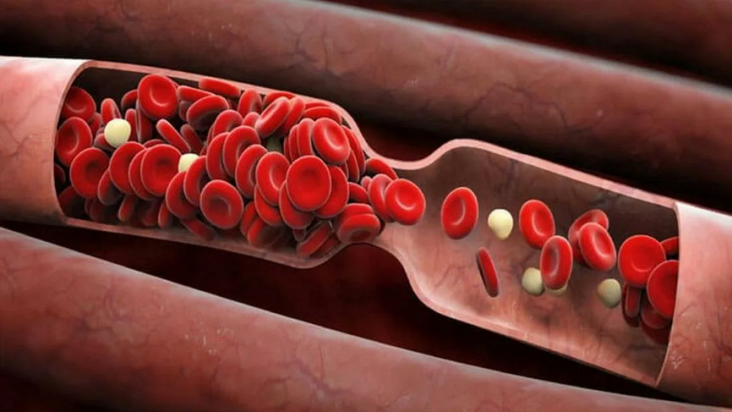
Before understanding the properties of the effects of acetylsalicylic acid - the official medical name of aspirin, you need to understand the reasons for increasing blood thickening. So, why is the blood of a person with age become thick:
- Blood consists of a liquid medium - plasma.
- It also contains a variety of cellular elements (leukocytes, red blood cells and platelets) and substances “intermediaries” that regulate the body and the entire circulatory system (enzymes, hormones, trace elements).
- Each of the components is necessary for the functioning of the body.
- But the balance between them is no less important. Due to its violation, the chemical composition of the blood changes, it becomes thicker or more liquid. So, in particular, the appearance of anemia is followed by an erythrocyte deficiency. But with an increase in their blood, its viscosity increases.
In the language of medical terms, a decrease in the quality characteristics of the blood increases the activity of its coagulation and further leads to the development of hypercoagulation syndrome. This indicates a slowdown in blood flow due to increased thickening blood.
The reasons why the blood becomes more viscous:
- Deficiency of trace elements and vitamins in the body. The lack of necessary nutrients negatively affects the composition of the blood, its viscosity.
- Insufficient number of fluids. Dehydration of the body affects the structure of tissue, the elasticity of blood vessels, the density of blood. In addition, the quality of water consumed is of great importance. Its composition affects not only the gastrointestinal tract, but also on the vascular and circulatory systems.
- Sedentary lifestyle, age. A person’s activity affects the strengthening of not only the muscle and bone frame of the body, but also the state of blood vessels. The situation is aggravated over time - the older we become, the more blood crash increases, the vessels lose their original flexibility.
- Status of the liver and spleen. The organs are actively involved in the process of creating blood elements. Their defeat can lead to a qualitative change in this liquid connective tissue.
- Heredity. Pathologies of the body are often inherited.
- Diseases of the circulatory system. They affect the cellular elements of the blood, violating its composition.
- Pathological diseases and inflammatory processes. Chronic diseases, hormonal changes, oncological neoplasms have a strong effect on the condition of the blood.
These are the main factors that affect the change in the composition and increase the viscosity of the blood. But besides them, there are indirect circumstances that affect clinical indicators:
- Increased body weight. Violation of metabolism affects blood indicators.
- Increased cholesterol level Increases the fraction of the viscosity of the components.
- Cold viral infections, inflammatory processes lead to growth of leukocytes, protein. An increase in their share changes the blood composition.
- Alcoholic drinks, tobacco products. The use of alcohol increases the risk of dehydration, which leads to a change in blood fluidity. Smoking can provoke the early formation of blood clots.
- External temperature influences. Burns, hypothermia - provoke a strong stressful situation for internal organs, which leads to a violation of the circulatory system.
- Taking medications. The main negative effect on the quality of the blood has the use of hormonal drugs.
- Surgical intervention. The post -rehabilitation period using drug therapy, possible blood transfusion, immobilization state increases the risk of blood viscosity.
- Chronic stress. Under the influence of the provoking factor, the production of hormones that cause narrowing of the vessels is enhanced. As a result of which blood flow is slowed down.
- External factors. Environmental pollution, radioactive lesion, poisoning with compounds of heavy metals, reduce blood fluid patency.
It is important to understand: Only a specialist can make an accurate diagnosis after examination and passing the necessary tests.
How does aspirin affect blood thinning?

The main pharmaceutical properties of aspirin are:
- Removing the pain syndrome
- Lowering body temperature
- Suppression of inflammatory processes in the body
- Help in the treatment of rheumatism, joint disease
- Expanding the grid of small vessels that feed the upper layer of the skin
How else does aspirin affect blood liquefaction?
- Also, the tablet of acetylsalicylic acid has anti -agogation properties and blocks the possibility of closing blood clots.
- When dissolved in the circulatory system, the medicine slows down the development of blood elements - platelets responsible for the process of blood coagulation. Thanks to the timely reception of aspirin, it slows down significantly.
- Acetylsalicylic acid continues its effect in the body within 7 days.
But since the vitality of platelet is 5-9 days, And the bone marrow creates a new batch daily, then to prevent neoplasms, doctors recommend taking the product every day. The best biological time of taking the drug is evening.
When you need to dilute blood: symptoms of thick blood

Patients of adulthood are primarily encountered with symptoms of blood thickening. It should be noted that blood state can change several times a day. It is important in time to notice the manifestation of symptoms of thick blood:
- Constant fatigue
- Headache
- The state of depression, sharp mood swings, irritation
- Swelling of the veins
When do you need to dilute blood? Aspirin tablet is effective during the treatment and prevention of diseases:
- Cardiac ischemia. A whole set of pathological processes, including: angina pectoris, acute state of myocardial infarction, heart attacks.
- Violation of the blood supply and patency of the veins of the brain with a possible flow into ischemic stroke.
- Heart defects, prevention of thromboembolism.
- Atherosclerotic lesions of the vessels.
- Hypertonic conditions.
- Varicose diseases.
- Inflammatory damage to the walls of blood vessels - endarteritis.
- Preventive therapy of thrombotic consequences associated with vascular stenting.
- Changing the state of the placenta in the body of pregnant women.
This is due to a natural decrease in fluid in the tissues of the human body. The manifestation of symptoms in old age is especially dangerous, when cholesterol jumps are observed against the background of progressive hypertension.
Aspirin pills lift blood: is it worth taking them?
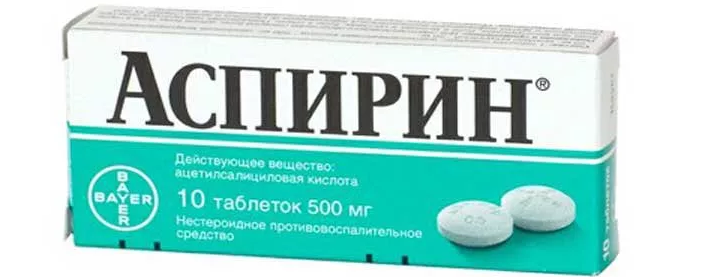
Any drug, in addition to positive qualities, has a number of disadvantages. Aspirin has a wide range of action, well -established in several directions. Nevertheless, many doctors talk about the inappropriateness of its use, and replacing more modern medicines. Aspirin tablets dilute blood? Is it worth taking them?
What are the arguments in favor of using acetylsalicylic acid:
- According to medical studies, regular intake of the drug reduces the risk of developing cancer tumors of the gastrointestinal tract, genitourinary systems, as well as lungs.
- Cardiologists claim the undoubted benefit of the use of aspirin. It dilutes blood, stimulates the circulatory system, reduces the risk of blood clots.
- The necessary use for preventive purposes after the heart attacks, heart attacks, strokes.
The affordable price, a positive effect on the state of the circulatory system contribute to the fact that the drug is everywhere and widely used by doctors. But out of negative effects, it should be noted:
- The constant use of aspirin irritates the mucous membrane of the stomach, which entails the development of peptic ulcer.
- Incorrect dosage of the drug can lead to internal bleeding.
- Aspirin does not combine with many drugs. Especially dangerous is simultaneous use with alcoholic beverages.
- Long -term use destroys the cellular structure of the liver and brain.
- It is possible to occur allergic reactions to aspirin components, individual intolerance.
Take aspirin for liquefaction of blood only at the direction of the doctor, having previously discussed the benefits and possible risks with him.
What preparations of aspirin are taken to dilute blood: aspirin-cardio, cardiomagnil and others

To thin the blood, reducing the risk of blood clots, strengthening the heart vessels, drugs based on acetylsalicylic acid are prescribed. What preparations of aspirin are taken to thin blood? The most popular includes:
- Aspirin-Cardio. The drug is produced in tablets. It is used for preventive purposes, a course of therapeutic therapy.
- ASK-Cardio. Effective Russian medicine designed for prolonged use. It has a low cost.
- Aspicor. It is used as the prevention of thrombosis, heart vessels. Long -term medicine.
- Cardi-Ask. It is prescribed for heart pathologies.
- Cardiomagnil. One of the most popular drugs from a number of "heart aspirins". Doctors recommend taking the elderly to all people.
This is not a complete list of the most worthy and inexpensive drugs for liquefaction of blood. The main advantage of these medicines is a small dosage of the active substance, which increases the safety of prolonged administration. Each packaging is designed for a monthly course of treatment.
How to take an ordinary, simple aspirin for liquefaction of blood: is it possible?
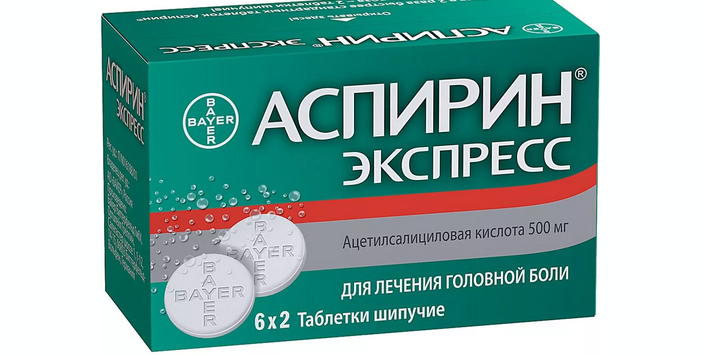
Conventional aspirin can be used to thin the blood, but exclusively as prescribed by the doctor and in a small dosage. He will determine the exact dosage and duration of the reception. How to take an ordinary, simple aspirin for liquefaction of blood?
General recommendations for taking aspirin:
- For preventive purposes, for cardiovascular pathologies, the drug is taken in a minimum and medium dosage- 75-160 mg(from a quarter to half a tablet).
- The medicine is drunk daily, once a day, the time of administration is the same.
- Aspirin actively affects the gastric mucosa, so the drug is taken half an hour after eating.
- In order to neutralize the effect of acid, the medicine is washed down with a large amount of water or milk.
- It is better to take aspirin at night, since it is at this time of the day, in a state of physical rest that the risk of developing thromboembolism increases.
- The therapeutic course has a duration at least 2 months.
Important: The drug is unacceptable to combine with alcoholic beverages.
How is it right, how many times a day, in what dose and when is it better to take aspirin tablets for liquefaction of blood: how many drugs to drink to men, women?
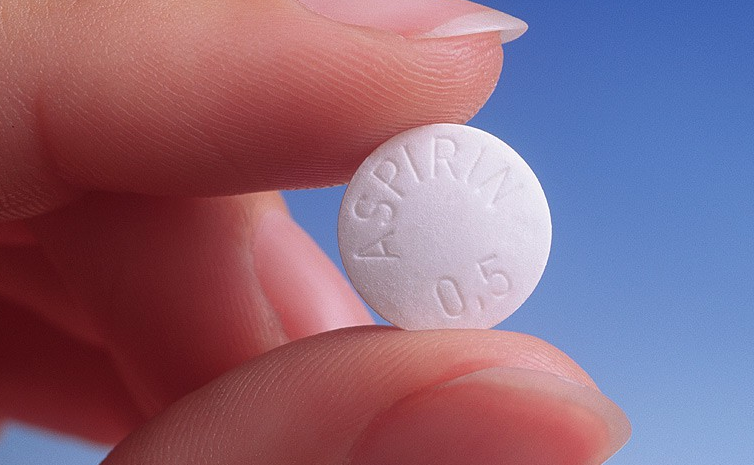
The effect of this medicine on the body's systems is not harmless. Therefore, the reception of aspirin is unacceptable for a long time. The scheme of therapeutic administration is prescribed by the doctor, on the basis of the diagnosis, the results of the tests, the age of the patient, and physical complexion. How is it right, how many times a day, in what dose and when is it better to take aspirin tablets for liquefaction of blood? How many drugs to drink men, women?
- The instructions indicate that treatment is required in the dosage 300-500 mg, but for the prevention of the disease, indicators are significantly reduced.
Despite the fact that representatives of both sexes may have problems with blood thickening, men more often suffer from this disease. And it is precisely the cause of violations in the fluidity of blood cells that often leads not only to irreversible consequences, but also to deaths. Doctors explain more increased indicators by the fact that the strongest floor is most prone to frequent use of alcoholic beverages and tobacco surgery.
In addition, the most common male professions are associated with heavy production work, large physical loads. Representatives of the strong half of humanity are more likely to stress than women. Statistics indicate higher indicators of heart attacks and strokes.
The risk of developing cardiovascular pathologies and the possibility of developing blood clots affects several factors:
- Chronic diseases
- Age
- Alcohol consumption and smoking
- Cholesterol level, blood pressure indicator
Given all the factors, doctors prescribe the necessary dosage of the drug. Usually it is slightly higher than the norm. In addition, with an increase in the amount of admission, additional time is prescribed - before 5 times a day.
Indication for the use of aspirin for women differs from male. Through the risk of thrombophlebitis, the risk of blood is affected by:
- Increased body weight, inflammatory processes in the body.
- Reducing the production of hormones after 40 years. And the opposite situation is taking hormonal drugs.
- Professional field of activity. People who spend a long time standing for a long time - hairdressers, sellers, controllers are at risk.
The scheme and duration of the cure are prescribed in each case in its own case, based on the effectiveness of the diagnosis of the disease.
How long, how often should I take aspirin for liquefaction of blood: the duration of the course, how many days?
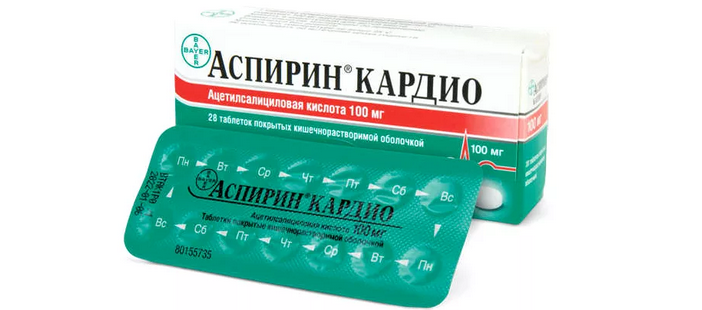
The duration of administration depends on the state of health, the existing chronic diseases, the age of the patient. How long, how often, how many days should I take aspirin for liquefaction of blood?
- The doctor selects the duration of the reception individually. Someone drinks the drug constantly, while others drink courses. For preventive purposes, doctors recommend the use of aspirin during 2-3 months. Next is a break and resumption of the use of the drug.
- With heart disease caused by lesion of blood vessels, myocardial infarction is prescribed to use from 50 to 325 mg - 1 time per day.
- When aggregation of platelets, reception 300-325 mg, duration 2 months.
- In case of violation of cerebral circulation in men, the dose of aspirin begins with 350 mg, with a gradual increase to 1 gr. Reception is broken several times a day.
As preventive measures for liquefaction of blood ASPIRINtake from 125 to 300 mg — Once a day.
Is it possible to take aspirin for thinning blood to pregnant women and children: what other contraindications do the drug have?
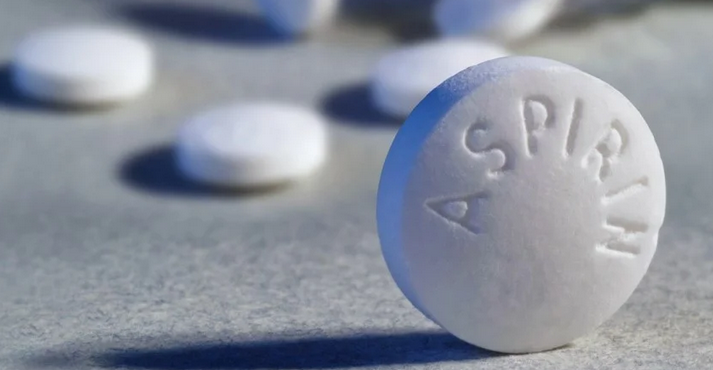
Doctors talk about the dangers of using aspirin for children. Pediatricians do not prescribe it at all. Is it possible to take aspirin to thin the blood for pregnant women and children? What other contraindications do the drug have? Read more:
- As mentioned above, the drug is prohibited from taking children, and in particular, to babies aged less than 12 years. The drug can affect the tissue of the liver and brain of the child's body.
- Pregnant women The drug is prescribed in extreme cases, only during the period of the 2nd trimester. In the first weeks of pregnancy, use can cause defects associated with the development of the fetus, provoke a miscarriage. In the 3rd trimester, aspirin is not prescribed due to the highest risk of damage to the internal systems of the baby, as well as the possibilities of abundant uterine bleeding during the process of birth and after the birth of the crumbs.
- The medicine is prohibited if a woman is breastfeeding. A newborn can receive it in minimal doses with mother's milk.
If the reception of aspirin is still necessary according to life indications, then the doctor prescribes minimal doses or offers an analogue.
What can be taken to thin blood, except for aspirin: analogues

Acetylsalicylic K-Tu as the main component is part of most drugs. An alternative to simple aspirin will be somewhat more expensive, but at the same time the least dangerous from the occurrence of side effects. What can be taken to thin blood except aspirin? As a substitute, the doctor can write out tablets suitable for liquefaction of blood - analogues:
- Aspkerd. A strong drug with a long effect. The effect of one tablet is capable of preserved about 7 days.
- Kurantil. It is prescribed as a prevention of blood clots. It enhances blood circulation, dilutes blood.
- Fenilin. The medicine is popular with doctors, due to the quick effect. A few hours after taking blood coagulation decreases. But the lack of medicine is only a short -term intake.
- Aspter. Its main use - reduces heat, removes inflammation. It is attributed to doctors to restore good blood coagulation.
- Asafen. The tool increases the strength of blood vessels, prevents the formation of blood clots. It is used for a violation of blood circulation of the brain.
In any case, only the attending doctor should choose a replacement based on the patient's condition, diagnostic analyzes.
People's medicine: What herbs are thinning blood?

Folk healers are able to offer an alternative replacement of aspirin with medicinal plants. Do not forget that the first acetylsalicylic acid was obtained by folk medicine from the crust of white willow. What herbs are thinning blood?
Aspirin Rast. origin contain:
- White willow bark
- Horse chestnut
- Donnik leaves
- Meadowsweet
- The peony is decorative
- Lumper clover leaves and flowers
- Chicory
- The fruits of hawthorn
- Raspberry leaves
Medicinal plants can be purchased at a pharmacy or prepared independently. Tincture or decoction is prepared from herbs:
- Pour for tincture 50 grams Raw materials half a liter of vodka. Insist during 14 days In a dark place, constantly shaking. Then strain and you can drink by 1 teaspoon 1-2 times a day.
- To prepare a decoction, grass or flowers dry. Then 1 tablespoon pour the raw materials with a glass of boiling water, insist in a water bath 15 minutes. Cool and take in 3 receptions.
The treatment continues 7-10 days., then a break, and the repetition of the course.
Is it possible to drink aspirin before taking tests: how does aspirin work on blood and urine tests?

With the debt use of acetylsalicylic, the barrier creates a barrier to free movement of blood cells. Can I drink aspirin before the tests? How does aspirin work on blood and urine tests?
- Doctors, for the correctness of the results of the analysis, carry out a complete cancellation of the tablets.
- In addition, the prolonged use of aspirin can provoke severe bleeding, therefore, before the fence of bio-material, blood is not taken.
- Before medical procedures, where there is a need to violate the integrity of tissues and skin, it is necessary to finish taking the drug at least in 3 days.
- Doctors will not analyze indicators against the background of taking the medicine, as this may show a decrease in leukocytes, which will not allow the correct conclusion about the presence or absence of pathologies in a person.
Before studying urine analysis, you should also refuse to take all medicines, including aspirin. Since its prolonged consumption affects the correctness of the results.
Aspirin tablets for liquefaction of blood - how to take: reviews

Numerous reviews indicate a favorable effect of aspirin on blood thinning. But its use should not occur uncontrollably. In addition to therapeutic treatment, it is important to exclude all indirect factors affecting the density of biological fluid. Add small physical activity, in order to avoid the appearance of blood clots, revise the diet, reducing the number of products affecting the increase in blood sugar and increasing cholesterol. Getting rid of bad habits will help to avoid unpleasant consequences for the body.
Here are reviews about aspirin tablets for liquefaction:
Sergey Viktorovich, Therapist of the first category, 42 years old
An excellent drug that has not lost its relevance despite its centenary. For a long time of my practice, Aspirin has established itself from the best side. This is an inexpensive drug, it works for the prevention of cardiac pathologies and in the initial stages of thrombophlebitis. It has a powerful anti -inflammatory effect. With precious observance of our recommendations, the patient will not encounter side effects of therapy: nausea, heartburn, complications to healthy organs. The main thing in the reception of aspirin is to observe several basic rules: the duration of the reception, dosage, regularity.
Evgenia, 60 years old
In the comments on the medical articles that I read in the media, doctors definitely speak about the benefits of taking aspirin for liquefaction of blood. But they emphasize that you should not self -medicate. Any drug needs to be taken only as prescribed by a specialist, and in the dosage that he will indicate. And it is right! I drank Aspirin Cardio after a heart attack two years ago. Now, for the prevention of seizures, the doctor has again prescribed the reception of these tablets, but already in courses. I don’t feel any complications, the analyzes are normal, everything is fine.
Olga, 35 years old
My mother has a thick blood, the attending physician prescribed an acetylsalicylic acid intake. Every day on a tablet. We buy aspirin of any manufacturer, it does not particularly play. Accepts every day, already for 2 years. Perhaps that is why she does not have headaches, fever, pressure drops. A good, necessary medicine, and is inexpensive - which is also important. I am glad that it is always on sale and the state regulates the prices for it, so pharmacies and manufacturers, prices for it will not be able to increase it.







